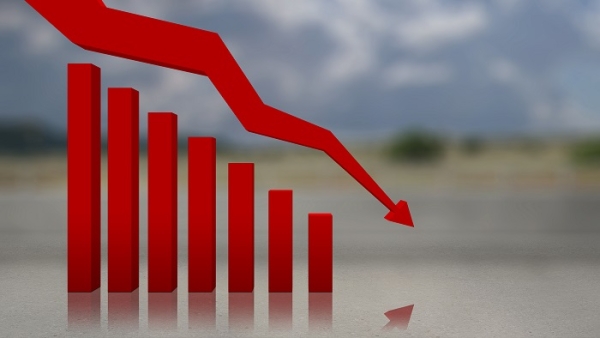Nigeria’s inflation rate dropped to 22.97 per cent in May 2025, the National Bureau of Statistics has said.
The figure represents a decline of 0.74 percentage points when compared to the 23.71 per cent recorded in April 2025.
On a year-on-year basis, headline inflation fell by 10.98 percentage points from 33.95 per cent recorded in May 2024.
This was disclosed in the Consumer Price Index report for May 2025, released by the National Bureau of Statistics on Monday.
The report read, “In May 2025, the Headline inflation rate eased to 22.97 per cent relative to the April 2025 headline inflation rate of 23.71 per cent.
“Looking at the movement, the May 2025 Headline inflation rate decreased 0.74 per cent compared to the April 2025 Headline inflation rate.”
It shows that the decline in the inflation rate was largely driven by a slowdown in the rate of increase in the average prices of goods and services.
According to the report, on a month-on-month basis, the headline inflation rate stood at 1.53 per cent in May 2025, lower than the 1.86 per cent recorded in April.
This indicates that while prices continued to rise, they did so at a slower pace compared to the previous month.
Food inflation remained a major driver of overall inflation. The food inflation rate stood at 21.14 per cent year-on-year in May, a sharp drop from 40.66 per cent recorded in the same month last year.
The NBS attributed the sharp annual drop to the change in the base year, following the CPI rebasing.
On a month-on-month basis, however, food inflation rose to 2.19 per cent in May from 2.06 per cent in April, driven by increases in the prices of yam, cassava, maize flour, sweet potatoes, fresh pepper, and ogbono.
Urban inflation stood at 23.14 per cent year-on-year, lower than 36.34 per cent in May 2024.
Monthly urban inflation was 1.40 per cent in May, slightly higher than the 1.18 per cent recorded in April.
Rural inflation also dropped to 22.70 per cent year-on-year from 31.82 per cent in the corresponding period of 2024.
On a monthly basis, rural inflation slowed to 1.83 per cent from 3.56 per cent in April.
Core inflation, which excludes volatile agricultural produce and energy, dropped to 22.28 per cent in May from 27.04 per cent recorded in May 2024.
Month-on-month core inflation also declined to 1.10 per cent from 1.34 per cent in April.
An analysis of the divisional contributions to the headline inflation showed that food and non-alcoholic beverages remained the highest contributor, accounting for 9.20 percentage points.
Other major contributors include restaurants and accommodation services (2.97 per cent), transport (2.45 per cent), housing, water, electricity, gas and other fuels (1.93 per cent), and education (1.42 per cent).
The report also showed that on a month-on-month basis, Bayelsa recorded the highest rise in headline inflation at 9.11 per cent, followed by Bauchi at 4.85 per cent and Borno at 4.42 per cent.
On the other hand, Kaduna, Jigawa and Edo recorded the steepest monthly declines, with -6.75 per cent, -4.40 per cent and -2.94 per cent respectively.
For food inflation, Borno State recorded the highest year-on-year rate at 64.36 per cent, followed by Bayelsa at 39.85 per cent and Taraba at 38.58 per cent.
The slowest increases were recorded in Katsina (6.90 per cent), Rivers (9.18 per cent), and Kwara (11.31 per cent).
On a monthly basis, Bayelsa (12.68 per cent), Cross River (11.15 per cent) and Anambra (9.10 per cent) posted the highest food inflation rates, while Katsina (-5.42 per cent), Jigawa (-4.02 per cent) and Kaduna (-3.27 per cent) recorded declines.
Despite the statistical relief provided by the CPI rebasing, the persistent monthly increase in food and essential commodity prices continues to impact the cost of living across the country.


